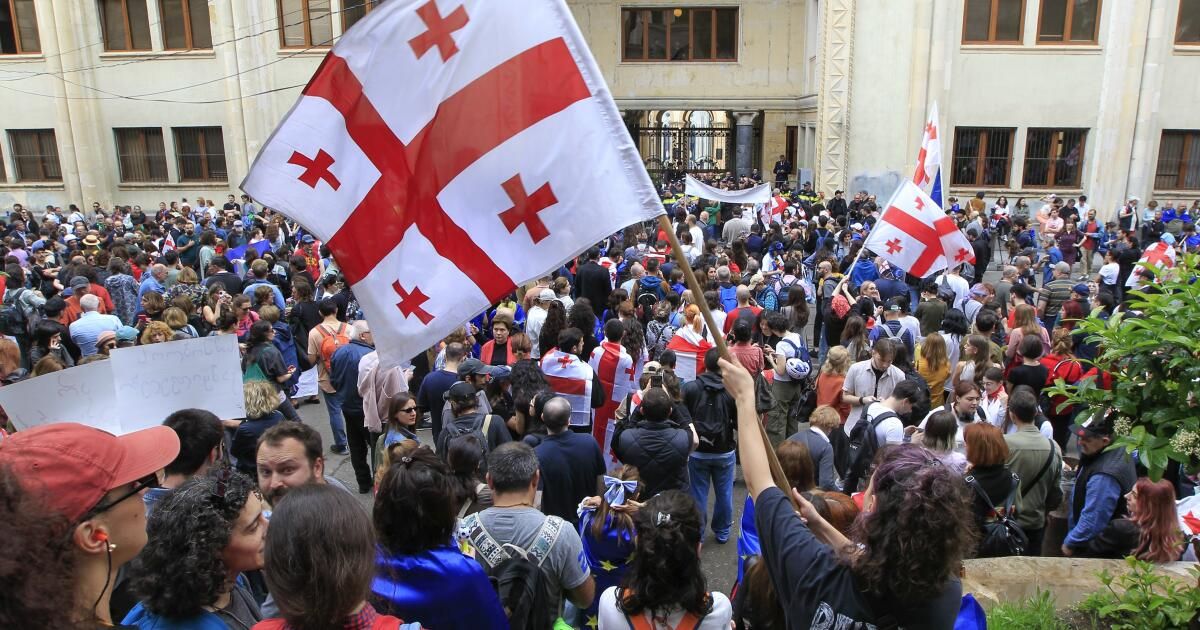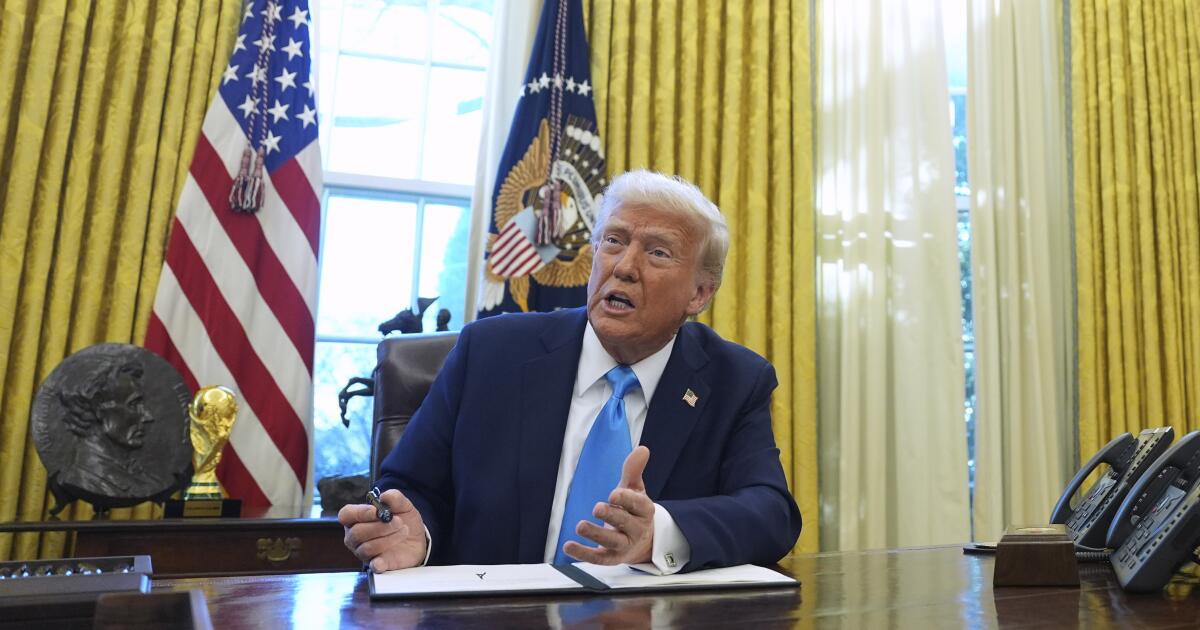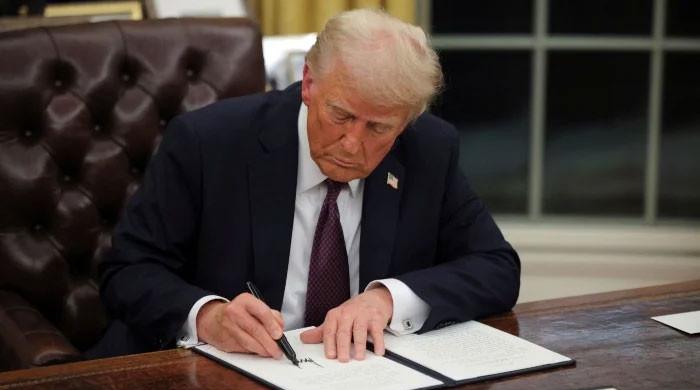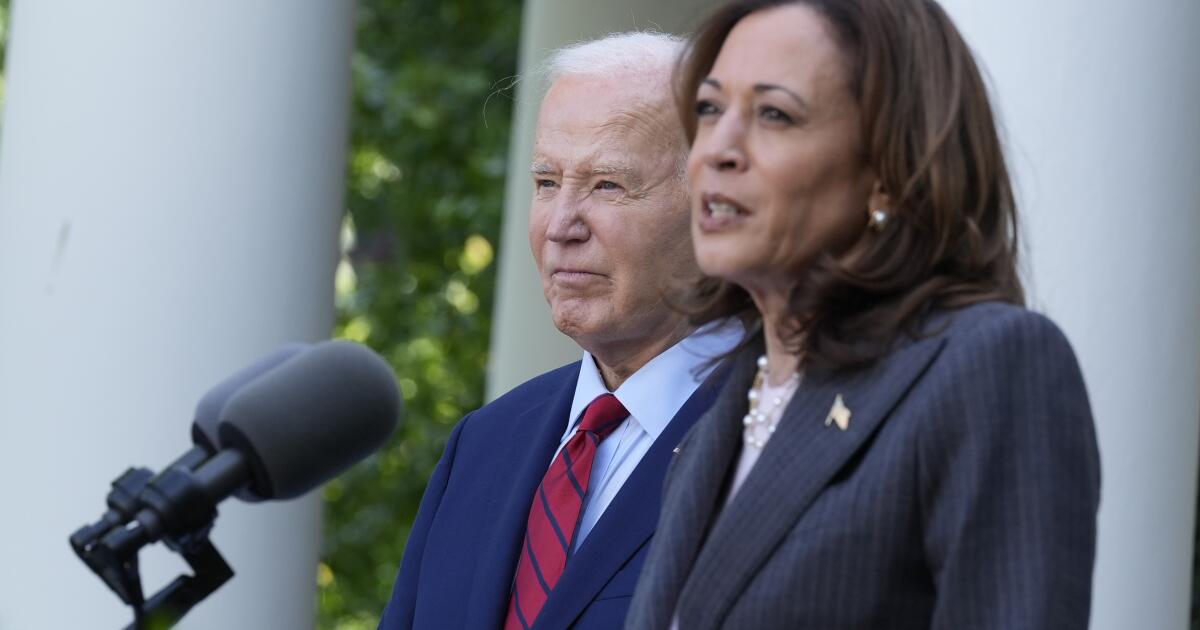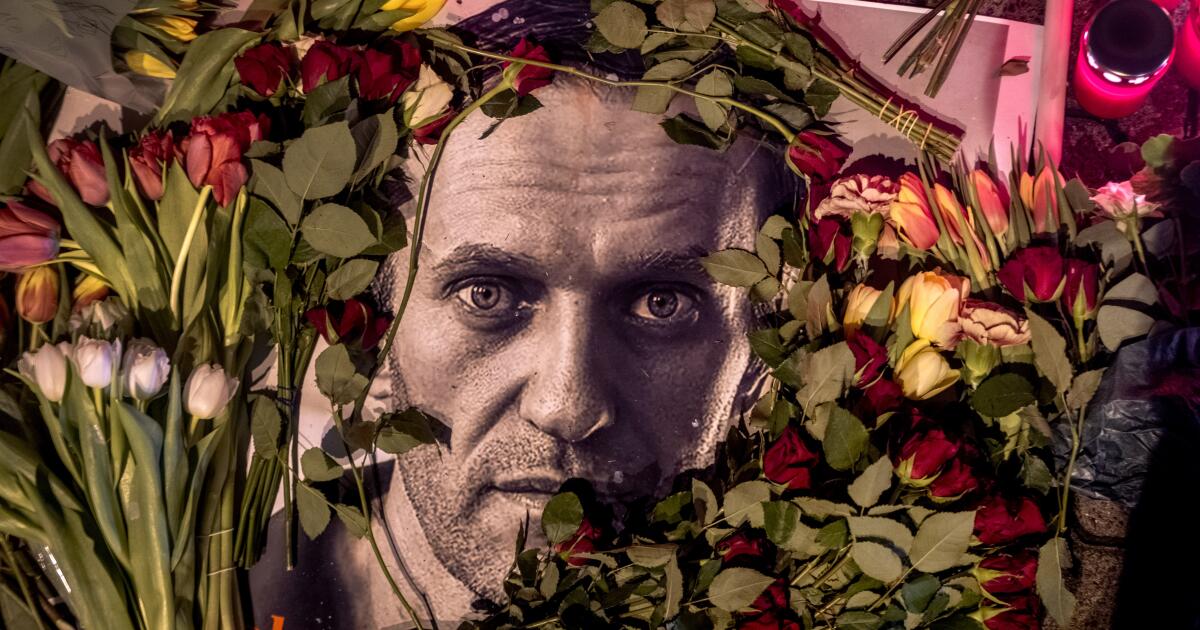In Georgia, a tug-of-war is unfolding between Moscow and the West: not the American state, but the small Black Sea nation hidden in the Caucasus mountain region. And the political stakes rose dramatically.
Georgia's parliament on Tuesday overrode a presidential veto of a measure critics have called the “Russian law,” dealing a blow to pro-democracy forces' hopes that the former Soviet republic could one day join the Union. European.
Opponents see the bill as a heavy-handed attempt to stifle press freedom and muzzle civil society, and have organized months of massive street protests to try to block the measure. Now, barring a last-minute revocation, the speaker is willing to sign it into law within five days if the president refuses to do so.
“It is absolutely pernicious,” Hans Gutbrod, a professor of public policy at Ilia State University in the Georgian capital, Tbilisi, said of the bill. “This is a decisive moment.”
The EU, which had warned that enacting the measure would “negatively affect” Georgia's chances of being accepted into the 27-member bloc, said it “deeply regrets” the overturning of the veto.
“The Georgian people overwhelmingly want to join the EU,” European Commission President Ursula von der Leyen wrote in X, adding that the bloc was “considering all options” in response to the veto override. She urged the Georgian government to “recommit to the EU's aspirations.”
In Washington, State Department spokesman Matthew Miller suggested that Georgia's government could be deprived of American aid if it strays from democratic values.
“We have to reevaluate all of that if the Georgian government is going to consider the United States and other Western partners no longer as partners, but as adversaries,” he told reporters.
The Biden administration had previously described the measure as an undermining of democracy and warned of possible sanctions against its sponsors.
At first glance, the bill in question might seem like a matter of mere bureaucracy. Requires media organizations, non-governmental groups (many of which rely on foreign funding), and nonprofit entities to register as “pursuing the interests of a foreign power” if they receive more than 20% of its funds from outside the country.
In practice, critics say, the requirement would have a deeply chilling impact on free expression and civil society in Georgia, a country of about 3.7 million people. Non-governmental organizations could be subject to heavy financial sanctions or be shut down entirely.
“It's a way of stigmatizing these groups, a very familiar pattern from the Soviet past,” said political analyst Kornely Kakachia, who heads a think tank in Tbilisi.
The measure is modeled on a nearly identical one in Russia that has been used by the Kremlin to suppress political opposition. After a failed attempt to push through a similar measure a year ago, critics say Moscow actively worked behind the scenes to engineer the bill's passage this time. The Kremlin denies involvement.
Georgia's parliament is controlled by the ruling Georgian Dream party, which had campaigned on a pro-EU platform, but then began taking steps to weaken its bid for membership, culminating in this bill.
Lawmakers' Tuesday vote – a raucous affair during which a member of the ruling party doused the opposition leader with water as he spoke – overrode a May 18 veto by President Salome Zourabichvili, an independent politician whose position It is largely symbolic. The president had charged that the bill hindered Georgia's efforts to become a “full member of the free and democratic world.”
Georgia's ruling party insists the move is aimed at preventing foreign forces from destabilizing the country. But critics call it the most resolutely authoritarian effort yet to dampen the pro-Western sentiment that has come to prevail in the three decades of independence.
The conflict escalated in late 2023, when the EU granted Georgia candidate status as a step towards membership in the bloc. For much of this year, demonstrations denouncing the foreign agent's action grew increasingly larger and were met with increasing displays of government force.
Footage from Tbilisi repeatedly showed police using tear gas and water cannon to try to break up huge crowds in the city's historic center. On Tuesday afternoon, after the vote, the riot police were again in action.
The ruling party was founded by a pro-Moscow oligarch and former prime minister named Bidzina Ivanishvili, whose wealth is directly tied to Russia. He and his party deny that they are trying to push Georgia into Moscow's orbit, but the crisis has unfolded against the backdrop of President Vladimir Putin's full-scale invasion of Ukraine, another neighbor whose sovereignty Russia has rejected. violently.
Like Ukraine, Georgia gained its independence after the implosion of the Soviet Union in 1991. But freeing itself from Russian control has not been easy. In 2008, Russia and Georgia went to war over the breakaway Georgian province of South Ossetia.
To stay on the path to EU membership, Georgia would need to make progress on certain key benchmarks, including defending fundamental rights and protecting civil society.
Kakachia, who heads the Georgian Institute of Politics, said that although the fighting has important implications for both the West and Russia, pro-democracy forces in his country had difficulty gaining the attention of the outside world.
“Georgia is not a priority right now,” he said, citing the wars in Ukraine and Gaza, continental elections in Europe next month and the US presidential election in November. “And this benefits the government.”

